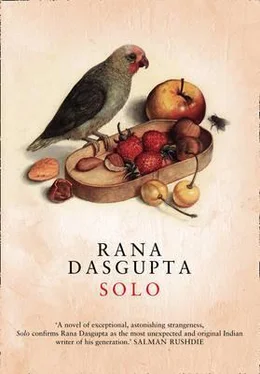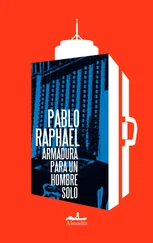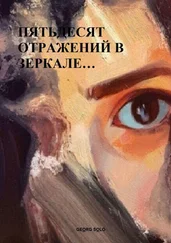Ulrich wanted to embrace his son, asleep in her arms, but he felt unable to approach Magdalena, and the opportunity passed. The young family boarded the train, and Ulrich thought with bitterness about the prehistoric bombast of his father, who pretended that the railways would unite what was split apart.
As far as he can remember now, he put his palms together in some perplexing gesture of prayerfulness, and turned to leave.
The Bible scholar took Magdalena and her son to Detroit, where he studied at the seminary for some years before going to serve as pastor to a Lutheran church somewhere in Texas. At that point, Magdalena broke off contact with Ulrich and his mother, and Ulrich never knew more about them.
For years afterwards, Ulrich remained convinced that the world was too systematic for a child to become lost to a father, and he continued to expect that his son would reappear at some point — if not in real life, then at least in the lists of names he sometimes read to this end. Lists of sports teams and prize winners, lists of committee members, lists of students sent on exchange visits, lists of convicts, lists of important poets, lists of patriots and botanists, lists of marriages, lists of academic appointments, lists of the approved, lists of the disgraced, and lists of the dead.
12
WHENEVER ULRICH’S NEIGHBOUR knocks at the door, he reaches for his pair of dark glasses. A residue of vanity.
She has seen them a thousand times before, but she chooses today to make a comment.
‘They make you look funny, those sunglasses,’ she says. ‘They’re small for you, and a bit lopsided.’
Ulrich explains that he fabricated them himself, and it was difficult to get them as good as this.
‘I never heard of a person making sunglasses before,’ she says. She sounds as if she does not believe him.
Ulrich says he copied them from a pair his mother had. She became extravagant towards the end of her life, and asked her friends to make unnecessary purchases for her in town. She bought this pair for a lot of money: they were made to look like tortoiseshell, and she thought they were glamorous. Ulrich told her he could make a pair just like it himself, without the expense. And he did it, too, but only after she died.
His neighbour is not interested in Ulrich’s story, true or not, and concentrates on what she has come to do.
The shape of the world changed when Ulrich lost his sight. When he had relied on his eyes, everything was shaped in two great shining cone rays. Without them, he sank into the black continuum of hearing, which passed through doors and walls, and to which even the interior of his own body was not closed.
His hearing is still perfect — which is why he wakes up so often at night, cursing the bus station, or the eternal wailing of cats.
If cats were to make an atlas, he sometimes thinks as he lies awake in his sagging bed, Sofia would be a great metropolis of the world. It would be the legendary city of pleasure, he muses, so loud and ubiquitous is the nightly feline copulation.
The blackness of his obliterated vision has made a fertile screen for his daydreams, and they have intensified during the last years. There he finds treasured smells, and tunes he has whistled, and other remnants that are lustred, now, with the mauve of nostalgia. He pictures the strange offspring that might have grown out of a man like him, whose blurred faces float among rows of lamps strung like greenish pearls in the darkness. He forgets that his own son, if he is still alive, would now be over seventy, and he dreams of strong young people filled with the courage he never had. He pleasures himself with implausible tableaux of revenge, and sometimes he can see himself in the streets of New York, as clear as day.
His daydreams seem to come from without, like respiration, and they have the power to surprise him. They provide relief from the rest of his thought, which rarely brings up anything new.
Whenever he recalls any event involving a horse, for instance, he always asks himself the same question. What happened to all the horses ?
He remembers the smell of them filling the streets, the lines by the river chewing in their nosebags, the constant sound of hoofs and shouting drivers. He thinks of the horses thronging in Berlin, heaving every kind of merchandise.
He does the same calculation every time he thinks of it: one horse for every twenty people, he estimates, making twenty million across Europe at that time, and still their numbers exploding with the population. Then, after the centuries of coexistence, humans turned away from horses, and embraced machines. But he does not remember seeing how the surplus of horses was carried off.
He tries to visualise the volume of twenty million horses. Did we eat them, without knowing ? he asks himself. The question irritates him because he has gone countless times through this sequence of thoughts, and he knows it does not produce any answers.
13
ULRICH MOVED BACK into his parents’ house, where he watched his father die of chagrin.
The days were already running out when people could die of such things. Ulrich knows his own will be a modern death, and his death certificate will require a mechanical justification for it: for even at his excessive age, bureaucrats will see his demise as a suspicious error. It is no longer possible to say on a death certificate that a person died of old age.
But Ulrich’s father died of chagrin. He sat in a chair for the better part of a decade, looking out of the window and growing deaf, and squawking, sometimes, with snatches of birdsong. The gap between his breaths became longer and longer, until finally, almost indiscernibly, they ceased.
While he was still alive, Elizaveta would say, ‘All he ever does is sit in that chair and look out of the window.’ It infuriated her to see him so inactive. But after he died she never said anything but, ‘That was the chair he loved.’ Or, ‘How he loved sitting in that chair.’ Or, ‘They are spoiling the view your father loved so much.’
Ulrich had never played music again after his childhood violin was thrown into the fire. But his separation from chemistry was not so perfect. It continued to seep back in, diverting him from his proper life, and prodding him, sometimes, to do puzzling things.
Though life had uprooted him from the pursuit of science, he continued to surround himself with chemical accoutrements, which acted like substitutes for the real thing. He fell into the routine of spending an hour or two after work in a scientific bookshop, which stocked some of the most recent international publications about chemistry. He liked to look through the contents of the German journals — the Zeitschrift für Angewandte Chemie, the Berichte der Deutschen Chemischen Gesellschaft, the Zeitschrift für Physikalische Chemie , and Liebigs Annalen — and to pose questions to the shopowner, who knew something about recent developments in the field. Ulrich usually came away with some small purchase or other: manuals for practical experimentation, mostly, and biographies of scientists. These books and papers began to accumulate in every room of the house, filling corners and covering chairs.
‘Are you trying to close up all the gaps?’ his mother asked bitterly, staring at the piles. ‘Make sure I never let down my hair?’
Elizaveta viewed Ulrich’s return home as an admission of failure, and she was no longer indulgent to his whims. In the past, she had supported him whenever her husband had stood in his way, but now she turned on him in just the same way — as if she were trying to preserve the dead man’s memory by taking over his attitudes. She treated Ulrich’s chemistry as if it were a form of onanism that had to be rooted out of him, and she forbade experiments in the house. She quizzed him about how he planned to get on in life, and cursed him for losing the daughter-in-law and grandson she loved so much. For years, she continued to write letters to the last address they had, which always found their way back to her, unopened.
Читать дальше
Конец ознакомительного отрывка
Купить книгу












